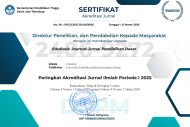Nature’s Power: Integrating STEAM in Outdoor Learning to Unlocking Enhance 4C Skills and Science Pedagogical Knowledge
Abstract
Outdoor learning, as a form of science pedagogical knowledge, plays a vital role in equipping elementary learners with 21st-century competencies. This qualitative case study explores how outdoor learning at SD Alam Ungaran, a nature-based Islamic elementary school in Indonesia, can foster the development of critical thinking, creativity, communication, and collaboration (4C) skills grounded in a STEAM-integrated thematic curriculum. This study collected data through document analysis, semi-structured interviews, and direct classroom observations. Data was analyzed by emphasizing coding, condensation, and thematic interpretation via NVivo 12 Pro. Findings revealed that outdoor learning significantly enhances 4C skills through experiential and project-based activities embedded in real-world environmental contexts. Students’ critical thinking skill is nurtured through inquiry and direct observation, while the creativity is stimulated through innovative ecological projects. Students developed their communication skills via interactive group discussions and presentations, and reinforced their collaboration skills through cooperative tasks such as market day and eco-projects. Moreover, students enriched their pedagogical science knowledge through the integration of STEAM concepts in authentic field activities. The SD Alam Ungaran integrated STEAM concepts and environmental ethics uniquely further to support the development of students’ holistic moral, emotional, and social skills. The implications of these results can be a best practice for schools to create an integrative curriculum that supports the development of 21st-century skills.
Keywords
Full Text:
PDFReferences
'Adiilah, I. I., & Haryanti, Y. D. (2023). Pengaruh model problem based learning terhadap kemampuan berpikir kreatif siswa pada pembelajaran IPA. Papanda Journal of Mathematics and Science Research, 2(1), 49–56.
Abimanyu, I., Narulita, H., & Purwani, L. L. D. (2024). Kajian outdoor learning proses dalam pembelajaran siswa sekolah dasar: Studi pustaka. JEMARI: Jurnal Edukasi Madrasah Ibtidaiyah, 6(1), 25–33.
Aguilera, D., & Ortiz-Revilla, J. (2021). STEM vs. STEAM education and student creativity : A systematic literature review. Education Sciences, 11(7), 331.
Antari, C. J., Triyogo, A., & Egok, A. S. (2021). Penerapan model outdoor learning pada pembelajaran tematik siswa di sekolah dasar. Jurnal Basicedu, 5(4), 2209–2219.
Bauer, J.-R., & Booth, A. E. (2019). Exploring potential cognitive foundations of scientific literacy in preschoolers: Causal reasoning and executive function. Early Childhood Research Quarterly, 46, 275–284.
Boileau, E. Y. S., & Dabaja, Z. F. (2020). Forest School practice in Canada : A survey study. Journal of Outdoor and Environmental Education, 23, 225–240.
Cahyaningtyas, A. P., Sari, Y., & Pradana, A. B. A. (2020). High order thinking skills: How is it integrated with cognitive assessment? Jurnal Ilmiah Pendidikan Dasar, 7(2), 109–120.
Carter, I., Harrington, C., & Ahrendt, S. (2024). An examination of an inquiry-based hybrid online/in-person science methods course. International Journal of Science Education, 47, 1–19.
Cincera, J., Gallayova, Z., Kuciakova, S., & Goldman, D. (2021). Roots and shoots: Building bridges between schools and their communities. Sustainability, 13(22), 12543.
Cotič, N., Plazar, J., Starčič, A. I., & Zuljan, D. (2020). The effect of outdoor lessons in natural sciences on students’ knowledge, through tablets and experiential learning. Journal of Baltic Science Education, 19(5), 747–763.
Dean, S. N. (2021). National park interpretation and place-based education: An integrative literature review. Journal of Experiential Education, 44(4), 363–377.
Fuertes, M. T., Balaguer, C., Fernández, M. Y., & Fernández-Morilla. M. (2020). Improving communicative competence through social interaction: A service-learning methodology. The Educational Review, USA, 4(11), 199–210.
Hartik, H., Novitasari, N., & Rahman, T. A. (2023). Penerapan metode outdoor learning untuk meningkatkan motivasi belajar di RA. Al Hikmah: Indonesian Journal of Early Childhood Islamic Education, 7(1), 18–29.
Jupriyanto, J., & Sari, Y. (2019). The students’ critical thinking skills on science learning subject at 5th grade in inquiry learning. JPSD (Jurnal Pendidikan Sekolah Dasar), 5(1), 127–136.
Kazeni, M., & Maleka, M. (2020). Strategies used by grade four educators to decode science terminology: A case study. Perspectives in Education, 38(1), 197–210.
Kiviranta, L., Lindfors, E., Rönkkö, M., & Luukka, E. (2024). Outdoor learning in early childhood education : Exploring benefits and challenges. Educational Research, 66(1), 102–119.
Mann, J., Gray, T., Truong, S., Brymer, E., Passy, R., Ho, S., Sahlberg, P., Ward, K., Bentsen, P., Curry, C., Cowper, R., & Mann, J. (2022). Getting out of the classroom and into nature : A systematic review of nature-specific outdoor learning on school children’s learning and development. Frontiers in Public Health, 10, 877058.
Martín-Páez, T., Carrillo-Rosúa, J., Lupiáñez-Gómez, J. L., & Vílchez-González, J. M. (2019). Analysis of the external assessment of the scientific-technological competence in 6th grade of Primary Education (2016). Ensenanza de Las Ciencias, 37(2), 127–149.
Marty, L., Venturini, P., & Almqvist, J. (2018). Teaching traditions in science education in Switzerland, Sweden and France: A comparative analysis of three curricula. European Educational Research Journal, 17(1), 51–70.
Molina, J., Hai, N. V, Cheng, P.-H., & Chang, C.-Y. (2021). SDG’s quality education approach: Comparative analysis of natural sciences curriculum guidelines between Taiwan and Colombia. Sustainability, 13(6), 3352.
Munazad, L., Hafizah, E., & Sauqina. (2023). Pengembangan modul pembelajaran IPA berbasis ICARE untuk memfasilitasi keterampilan kolaborasi siswa SMP/MTs. Journal on Teacher Education, 5(1), 19–28.
Nisa, K., & Sujarwo. (2021). Efektivitas komunikasi guru terhadap motivasi belajar anak usia dini. Jurnal Obsesi: Jurnal Pendidikan Anak Usia Dini, 5(1), 229–240.
O’Toole, J. M., McKoy, K., Freestone, M., & Osborn, J.-A. (2020). ‘Scientific literacy’: An exercise in model building. Education Sciences, 10(8), 204.
Parno, Yuliati, L., Hermanto, F. M., & Ali, M. (2020). A case study on comparison of high school students’ scientific literacy competencies domain in physics with different methods: PBL-STEM education, PBL, and conventional learning. Jurnal Pendidikan IPA Indonesia, 9(2), 159–168.
Ridder, H.-G. (2014). Book review: Qualitative Data Analysis. A Methods Sourcebook. German Journal of Human Resource Management, 28(4), 485–487.
Romero-Ariza, M. (2017). Inquiry-based learning: Is there enough evidence of its benefits in science education? Revista Eureka, 14(2), 286–299.
Setiawati, E., Wijayanti, P. S., Rianto, & Sukasih. (2023). Efektivitas pembelajaran outdoor learning process terhadap peningkatan kerja sama, motivasi belajar, dan hasil belajar IPS siswa sekolah dasar. Jurnal Paedagogy, 10(1), 115–125.
Shaner, S. E., Hooker, P. D., Nickel, A.-M., Leichtfuss, A. R., Adams, C. S., De La Cerda, D., She, Y., Gerken, J. B., Pokhrel, R., Ambrose, N. J., Khaliqi, D., Stahl, S. S., & Schuttlefield Christus, J. D. (2016). Discovering inexpensive, effective catalysts for solar energy conversion: An authentic research laboratory experience. Journal of Chemical Education, 93(4), 650–657.
Turekulova, A., Mukhambetova, L., Chimgentbayeva, G., & Doshan, A. (2024). Social, labor, and economic behavior of young people in the context of the emergence of a digital society. E3S Web of Conferences, 537, 02026.
Valladares, L. (2021). Scientific literacy and social transformation: Critical perspectives about science participation and emancipation. Science and Education, 30(3), 557–587.
Waters, C. A. (2024). Exclusionary narratives in environmental studies: Lessons from an urban nature center. Journal of Environmental Studies and Sciences, 14(3), 568–580.
Widodo, S., & Wardani, R. K. (2020). Mengajarkan keterampilan abad 21 4C (Communication, Collaboration, Critical Thinking and Problem Solving, Creativity and Innovation) di sekolah dasar. MODELING: Jurnal Program Studi PGMI, 7(2), 185–197.
Zheng, K.-H., & Lee, S.-T. (2018). When science literacy and reading literacy meet: Experimental study of science news reading strategy for high school students. Journal of Research in Education Sciences, 63(4), 157–192.
DOI: https://doi.org/10.17509/ebj.v7i1.82364
Refbacks
- There are currently no refbacks.
Copyright (c) 2025 Universitas Pendidikan Indonesia
This work is licensed under a Creative Commons Attribution 4.0 International License.
This journal is indexed by




.png)




.png)
1.png)


1.png)

.png)